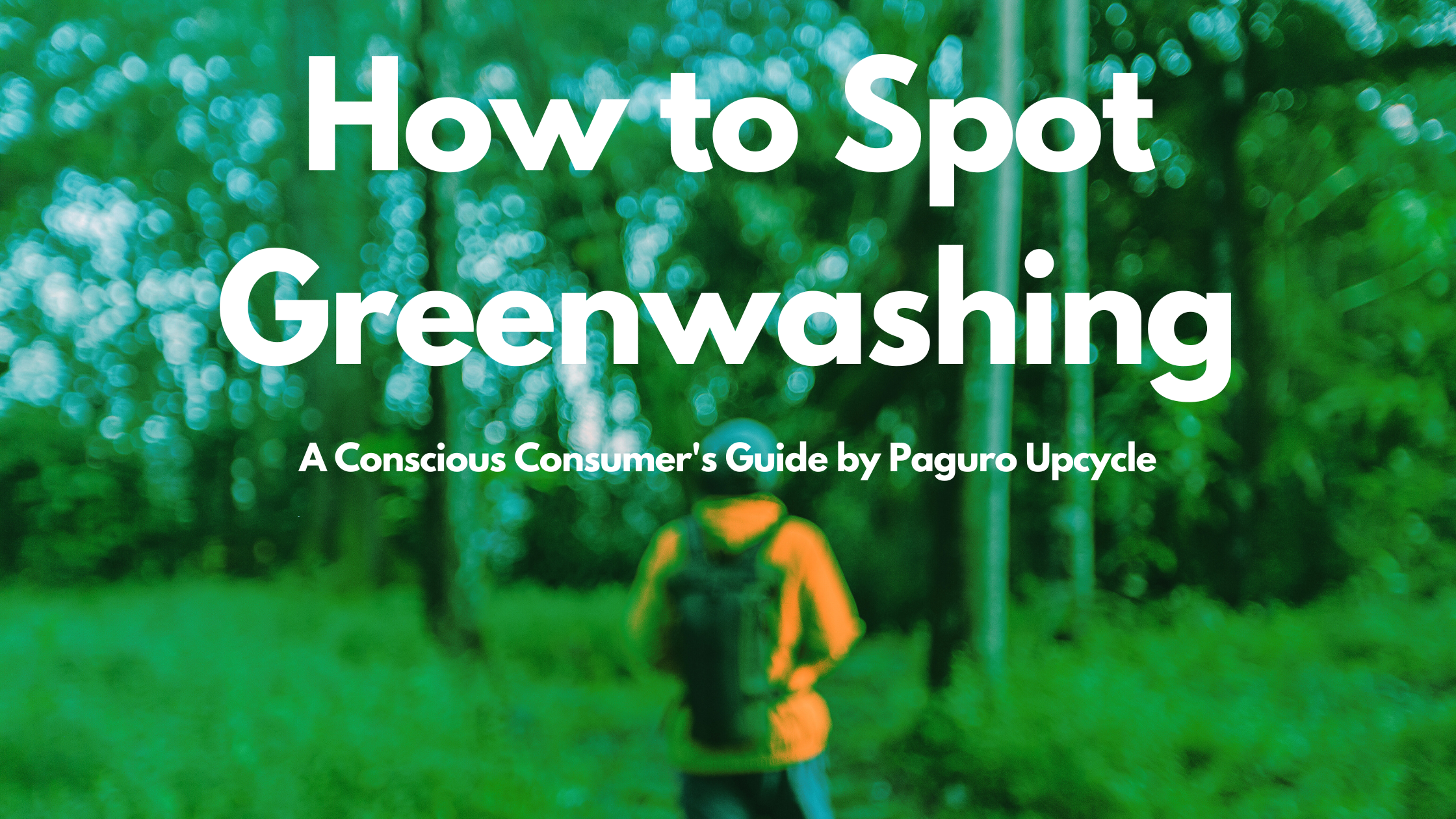
When Sustainability Becomes a Buzzword
Sustainable. Ethical. Eco-conscious. Circular. You've seen the words. They're everywhere. But what do they really mean?
As more consumers demand accountability from brands, sustainability has become a marketing must-have. But with it comes a surge of greenwashing: when companies make misleading claims to appear more environmentally or socially responsible than they actually are.
This blog offers a clear, practical guide to help you cut through the noise and shop with intention. Whether you're browsing online or on the high street, here are the tools to help you tell the difference between true sustainability and strategic spin.
1. Look Beyond the Buzzwords
Phrases like "eco-friendly," "green," or "conscious" sound great - but on their own, they mean very little. The first step to spotting greenwashing is recognising vague language with no proof.
Watch out for:
- Claims without context: "Sustainable materials" (which ones?)
- Superlatives with no data: "World's greenest brand"
- Ambiguous visuals: green leaves, earthy tones, and recycled iconography without substance
Quick Tip: If a brand uses more energy explaining how sustainable they are than what they're doing sustainably, that's a red flag.
2. Scan for Specifics: Are There Details to Back It Up?
Genuine sustainability is measurable. Ethical brands are usually proud to share exactly what they’re doing.
Check for:
- Material breakdowns (e.g. "Made with 95% GOTS-certified organic cotton")
- Supply chain transparency (e.g. "Handmade in Bali by a family-run studio")
- Third-party certifications (GOTS, Fair Trade, B Corp, OEKO-TEX)
- Carbon/emissions reporting or circularity data
No certifications? That doesn’t always mean greenwashing - especially for microbrands. Look instead for storytelling, consistent values, and openness about limitations.
3. Beware of the 'Conscious Capsule' Illusion
Many big brands release one "green" collection while the rest of their operations remain unchanged. This is called green window-dressing.
What to ask:
- Does the brand offer a few eco-products, but mostly push mass-manufactured fast fashion?
- Are they taking responsibility across the board - or just marketing a one-off campaign?
- Is their pricing still pushing overconsumption?
Brands that are truly sustainable will reflect it in their whole model, not just a single collection.
4. Check Independent Resources (But Know Their Limits)
Websites like Good On You and Remake are helpful for checking major brands' sustainability claims.
- Good On You rates fashion brands on three pillars: people, planet, and animals.
- Remake offers scorecards and campaigns demanding corporate accountability.
However... Many microbrands, like Paguro Upcycle, won’t appear on these platforms. That doesn’t mean they’re less sustainable - it means they may not have the resources to engage with formal rating systems. Instead, go direct: look for brand blogs, FAQs, and real conversations on social media.
5. Know the Difference: Greenwashing vs. Imperfection
No brand is perfect. Even the most ethical businesses have challenges with packaging, shipping, or scaling. The difference lies in transparency.
Greenwashing hides reality. Honest brands share the progress they’ve made and the work they’re still doing.
Ask:
- Does the brand acknowledge its challenges?
- Are they actively working on solutions, or just spinning a story?
- Do they seem driven by values, or trends?
6. Follow the Feelings: Does This Purchase Add Meaning?
One of the most overlooked aspects of sustainability is emotional durability: how much we value, use, and care for an item over time.
Paguro’s designs, for example, are created not just to look good, but to feel purposeful. Whether it’s earrings made from electrical wire or a bag stitched from army tents, their stories are part of the product.
A truly sustainable purchase should feel connected, not compulsive.
The Power of an Informed Choice
You don’t need a degree in environmental science to shop more sustainably. You just need curiosity, clarity, and a little healthy scepticism.
Start by asking questions. Seek substance. And support brands that lead with honesty, heart, and real action - even if their progress is imperfect.
Because when we buy better, we build better systems.
Ready to explore real sustainability? Shop Paguro's upcycled collection or read more about our story.

Comentarios (0)
Regresar a Vista desde la piscina de rocas